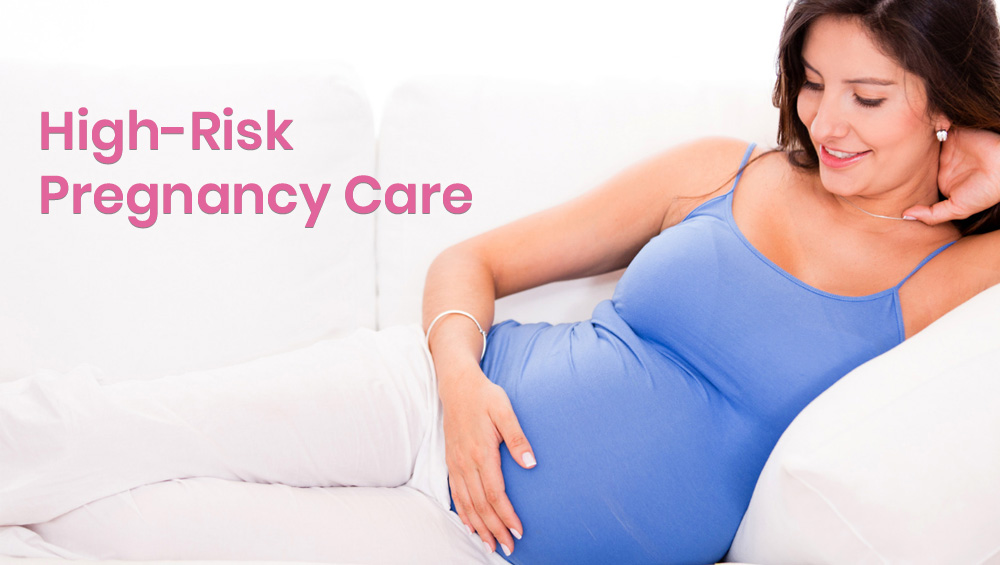A high-risk pregnancy occurs when potential complications could affect the health of the mother, the baby, or both. While all pregnancies require attention and care, some circumstances necessitate more specialized monitoring and interventions to ensure a safe outcome. Understanding what qualifies as high-risk, the potential causes, and how to manage such pregnancies is essential for expecting parents and healthcare providers.
What is a High-Risk Pregnancy?
A pregnancy is deemed high-risk when medical or lifestyle factors increase the likelihood of complications. These risks can arise from pre-existing health conditions, complications that develop during pregnancy, or unique characteristics of the pregnancy itself, such as multiple fetuses. Women in high-risk categories often require additional prenatal care, including more frequent visits, specialized testing, and consultations with maternal-fetal medicine specialists.
Causes of High-Risk Pregnancy
High-risk pregnancies may result from a range of conditions, including:
Pre-existing Health Conditions:
Diabetes: Pre-existing or gestational diabetes can affect fetal development and increase the risk of complications during delivery.
Hypertension: Chronic high blood pressure can lead to preeclampsia or placental issues.
Autoimmune Disorders: Conditions such as lupus or multiple sclerosis may pose risks to the mother and fetus.
Pregnancy-Related Conditions:
Gestational Hypertension: High blood pressure developing during pregnancy can threaten both the mother and baby.
Preeclampsia and Eclampsia: These severe conditions cause hypertension, protein in urine, and potential organ damage.
Placental Issues: Placenta previa or placental abruption may complicate delivery and cause significant bleeding.
Lifestyle Factors:
Smoking, alcohol consumption, or drug use can increase risks.
Poor nutrition or inadequate prenatal care contributes to complications.
Age-Related Factors:
Women under 18 or over 35 are at higher risk for complications such as gestational diabetes, preeclampsia, or chromosomal abnormalities in the baby.
Multiples and Complicated Pregnancies:
Carrying twins, triplets, or higher multiples increases the risks of premature birth and other complications.
Signs of a High-Risk Pregnancy
Early identification of symptoms is critical for managing risks. Some warning signs include:
Severe or persistent abdominal pain.
Vaginal bleeding or significant fluid leakage.
Reduced fetal movements or unusual patterns.
Severe headaches or visual disturbances.
Swelling in the hands, face, or legs beyond what’s typical for pregnancy.
Any unusual symptoms should be reported to a healthcare provider immediately.
Care for High-Risk Pregnancies
Proper care and monitoring are key to managing high-risk pregnancies. Here are some essential steps:
Frequent Prenatal Visits:
Regular checkups allow healthcare providers to track the progress of the pregnancy and detect issues early.
Specialized Testing:
Additional ultrasounds, amniocentesis, or blood tests may be required to assess the baby’s development and detect abnormalities.
Healthy Lifestyle Adjustments:
Adopting a balanced diet, staying hydrated, and getting adequate rest can reduce risks.
Medication and Treatment:
Prescribed medications may help manage chronic conditions like diabetes or hypertension. For some, blood thinners may prevent clotting issues.
Stress Management:
Mental health is vital during pregnancy. Practices like yoga, meditation, or counseling can help manage anxiety and promote well-being.
Delivery Considerations for High-Risk Pregnancies
Deliveries for high-risk pregnancies often require additional planning. Some cases may necessitate:
Early Induction or Cesarean Section: If complications like preeclampsia worsen, early delivery may be the safest option.
Specialized Medical Teams: Deliveries may involve neonatal specialists or surgeons prepared for potential emergencies.
Postpartum Care: Both mother and baby may need extra monitoring after birth to address lingering complications or premature delivery.
Empowering Expectant Mothers
Facing a high-risk pregnancy can be overwhelming, but education and preparation empower families to navigate the journey with confidence. Building a strong support system, staying informed, and working closely with a trusted healthcare team are critical steps to ensuring the best possible outcome.
Every pregnancy is unique, and while the term “high-risk” can sound daunting, advancements in maternal and fetal medicine mean most high-risk pregnancies result in healthy deliveries. With proper care and vigilance, the challenges of high-risk pregnancies can be successfully managed, offering hope and safety for both mother and baby.
